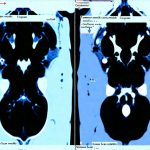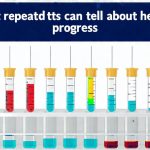It’s a frustratingly common scenario: you know something is wrong with your body, but repeated visits to doctors yield nothing but assurances that “everything looks normal.” Blood tests come back within range, scans show no abnormalities, and yet the nagging feeling persists – a deep-seated intuition that something isn’t right. This disconnect between subjective experience and objective medical findings can leave you feeling dismissed, invalidated, and even gaslit. It begs the question: how much weight should we give to our own internal signals when they contradict what healthcare professionals are telling us? Navigating this complex terrain requires understanding the limitations of modern medicine, recognizing the power of bodily awareness, and developing strategies for advocating for your health.
The tension arises from a fundamental difference in perspectives. Modern medicine excels at identifying objective pathology – disease that can be measured and observed through standardized tests. However, it often struggles to adequately address subjective experience – the nuanced ways in which illness manifests uniquely in each individual. Symptoms are frequently interpreted within established frameworks, potentially overlooking conditions that don’t neatly fit into predefined categories or dismissing experiences that aren’t easily quantifiable. This isn’t a fault of doctors themselves; it’s inherent to a system designed for efficiency and standardization. But when your experience falls outside those parameters, you’re left in the difficult position of having to bridge the gap between what you feel and what is being acknowledged.
The Limits of Objective Medicine
The reliance on objective data isn’t inherently bad; it’s essential for accurate diagnosis and treatment in many cases. However, it creates blind spots. – Imaging technology, while impressive, can miss subtle changes or conditions that don’t show up on scans. – Blood tests, though comprehensive, only provide a snapshot of certain biomarkers at a specific point in time. They may not capture the fluctuating nature of some illnesses. – Standardized diagnostic criteria often prioritize prevalent conditions, potentially overlooking rarer diseases or atypical presentations. Moreover, the pressure to see patients quickly and efficiently can limit the time available for thorough exploration of subjective symptoms. Doctors are often faced with difficult choices about which tests to order and how much time to dedicate to each patient, leading to a focus on what’s most easily measurable rather than necessarily what’s most relevant to the individual’s experience.
This isn’t about distrusting doctors; it’s about understanding the inherent limitations of the medical system. It’s also important to acknowledge that medicine is constantly evolving. What is considered “normal” or “healthy” can change as new research emerges. Conditions once dismissed as psychosomatic are now recognized as legitimate illnesses, demonstrating that our understanding of the body is always incomplete. Ignoring your gut feeling simply because it conflicts with a medical assessment risks silencing valuable information about your own health and potentially delaying appropriate care. The goal isn’t to reject medical expertise but to complement it with self-awareness and proactive advocacy.
Deciphering Your Intuition
What is “listening to your gut?” It’s not about ignoring scientific evidence or dismissing the opinions of healthcare professionals. Instead, it’s about recognizing and respecting the complex interplay between your physical sensations, emotional responses, and intuitive insights. Your body is constantly sending signals – subtle cues that something may be amiss. These can range from persistent fatigue or digestive issues to unexplained aches and pains, changes in mood, or a general sense of unwellness. The key is to pay attention to these signals without immediately dismissing them as insignificant or attributing them to stress or lifestyle factors. – Start by keeping a detailed health journal: record your symptoms, their severity, what triggers them, and how they impact your daily life. – Differentiate between anxiety-driven concerns and genuine physical sensations. This can be challenging, but mindful self-reflection is crucial. – Recognize that intuition isn’t always logical or rational; it’s often a feeling in the body—a sense of knowing without necessarily having concrete evidence.
The challenge lies in distinguishing genuine intuitive signals from anxiety, hypochondria, or simply overthinking. A healthy dose of skepticism is important, but dismissing every internal signal as “just worry” can be equally harmful. Intuition isn’t about predicting the future; it’s about recognizing patterns and responding to subtle cues that your body provides. It’s a form of embodied intelligence—a deep connection between mind and body. Cultivating this connection requires slowing down, paying attention to internal sensations, and learning to trust your own inner wisdom. This isn’t easy in a fast-paced world that often prioritizes external validation over internal awareness.
Building a Collaborative Relationship with Your Doctor
If you feel your concerns are being dismissed, the next step is to build a more collaborative relationship with your doctor – or find one who will listen. – Prepare for appointments: write down your symptoms in detail, including when they started, what makes them better or worse, and how they impact your life. Bring your health journal. – Be assertive but respectful: clearly articulate your concerns and explain why you believe something is wrong, even if it doesn’t fit neatly into a diagnosis. – Ask questions: don’t be afraid to ask for clarification about test results, treatment options, or the doctor’s reasoning behind their conclusions. – Consider seeking a second opinion: If you remain unconvinced by your initial assessment, exploring other medical perspectives can provide valuable insights.
It’s often helpful to frame your concerns not as “I think I have…” but as “I am experiencing…”. This focuses on the subjective reality of your symptoms rather than attempting to self-diagnose. Remember that doctors are human beings too; they appreciate patients who are actively involved in their own care and who communicate effectively. A good doctor will be open to considering alternative explanations, even if they initially disagree with your assessment. If a doctor consistently dismisses your concerns or makes you feel invalidated, it may be time to seek care elsewhere. Finding a healthcare provider who respects your experience and treats you as a partner in your health journey is essential for optimal well-being.
Exploring Alternative Approaches
When conventional medicine fails to provide answers, exploring alternative or complementary approaches can sometimes be helpful – not as replacements for medical care but as additions that address the holistic nature of illness. This might include: 1. Functional Medicine: Focuses on identifying and addressing the root causes of disease rather than simply treating symptoms. 2. Integrative Healthcare: Combines conventional medicine with evidence-based complementary therapies, such as acupuncture, massage therapy, or mindfulness practices. 3. Nutritional Therapy: Explores how dietary changes can impact health and well-being. It’s crucial to discuss any alternative approaches with your doctor to ensure they are safe and don’t interfere with existing treatments.
These approaches often emphasize the importance of lifestyle factors – diet, exercise, stress management, sleep – in promoting overall health. They recognize that illness isn’t simply a biological phenomenon; it’s influenced by a complex interplay of physical, emotional, and environmental factors. While alternative therapies aren’t always scientifically proven, they can sometimes provide relief or offer insights that conventional medicine overlooks. The key is to approach them with an open mind and a critical eye—evaluating their potential benefits and risks based on your individual circumstances. Ultimately, listening to your gut isn’t about rejecting medical expertise; it’s about empowering yourself to take control of your health and advocate for the care you deserve. It’s about recognizing that you are the ultimate expert on your own body.


















